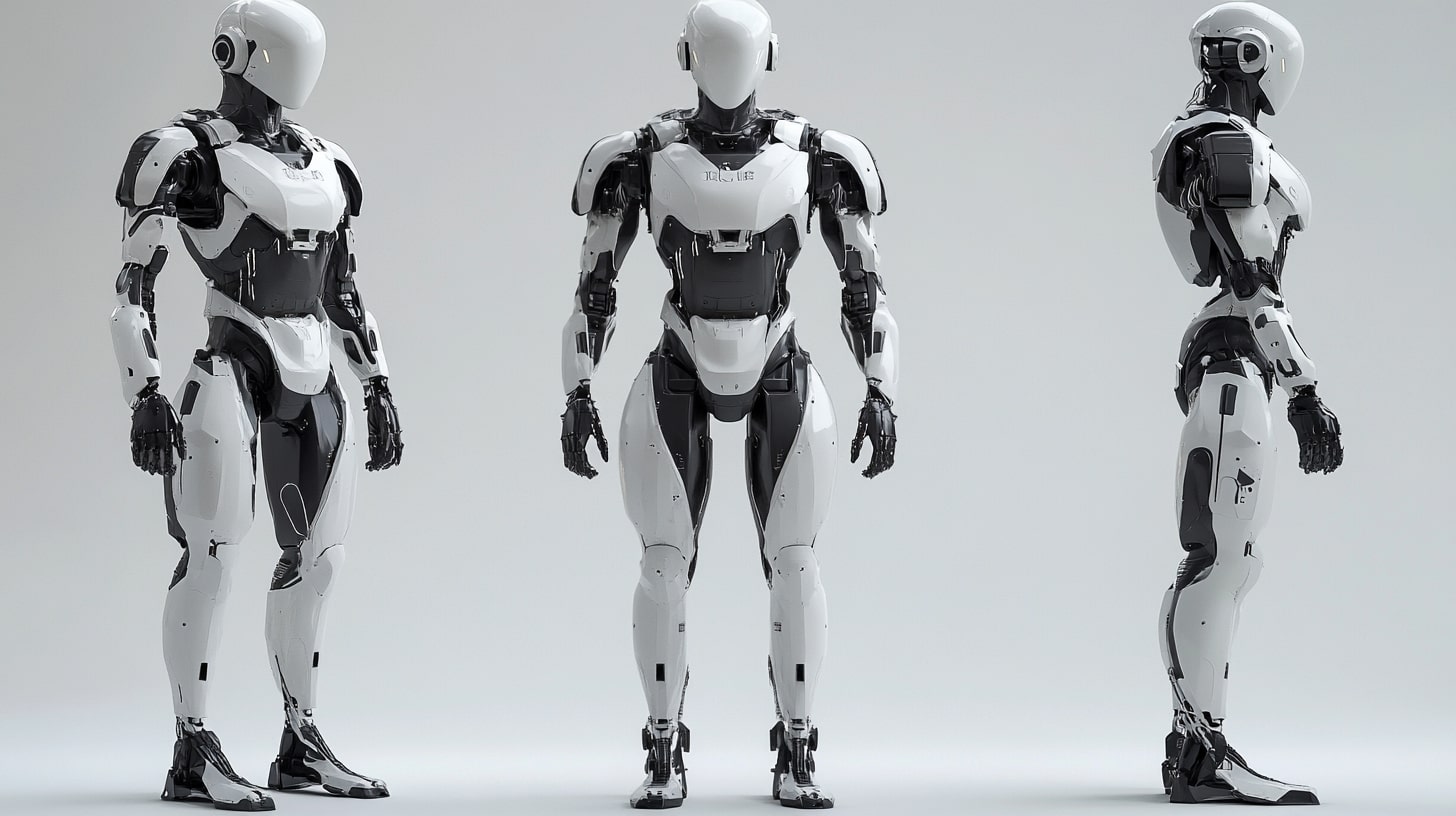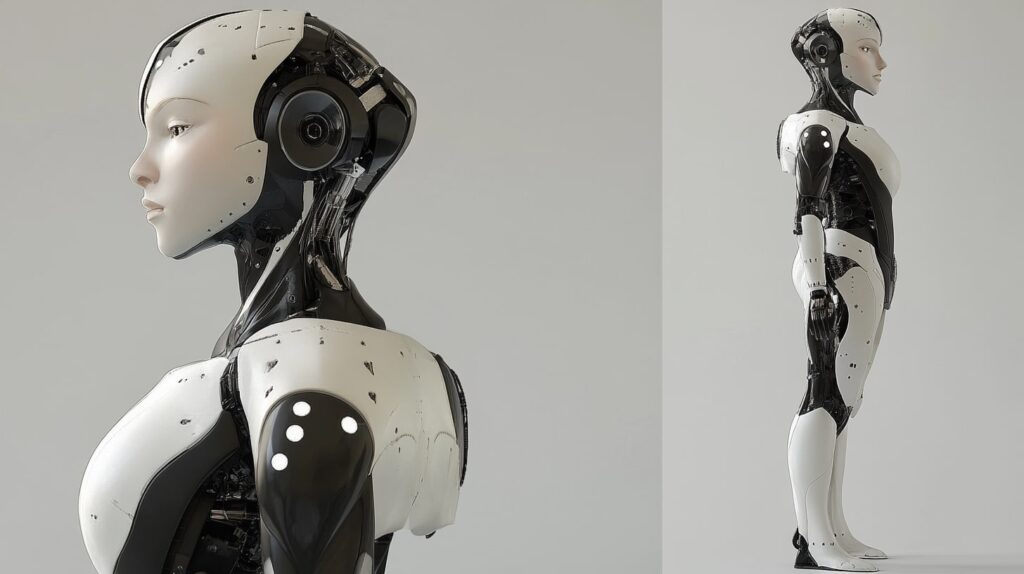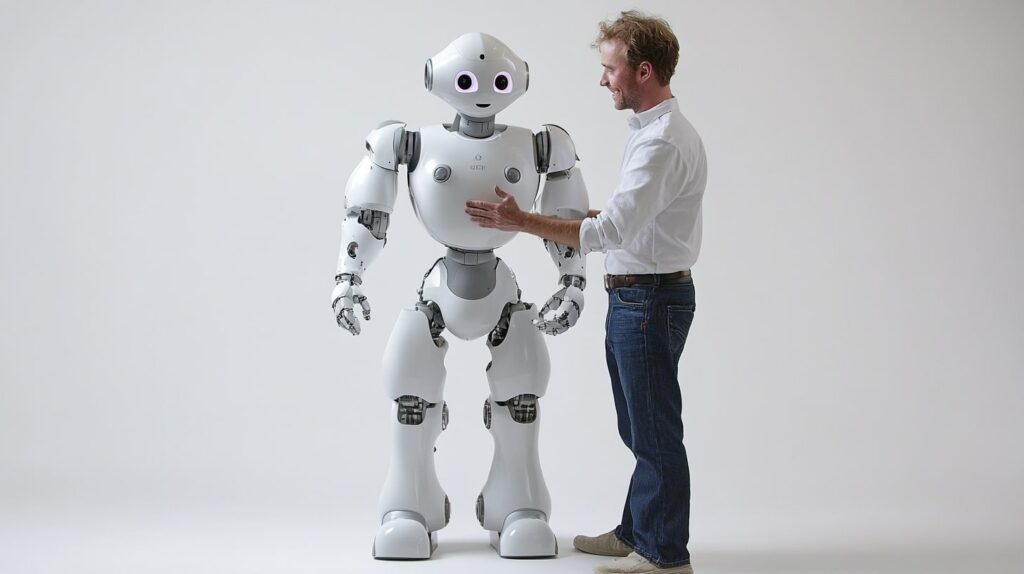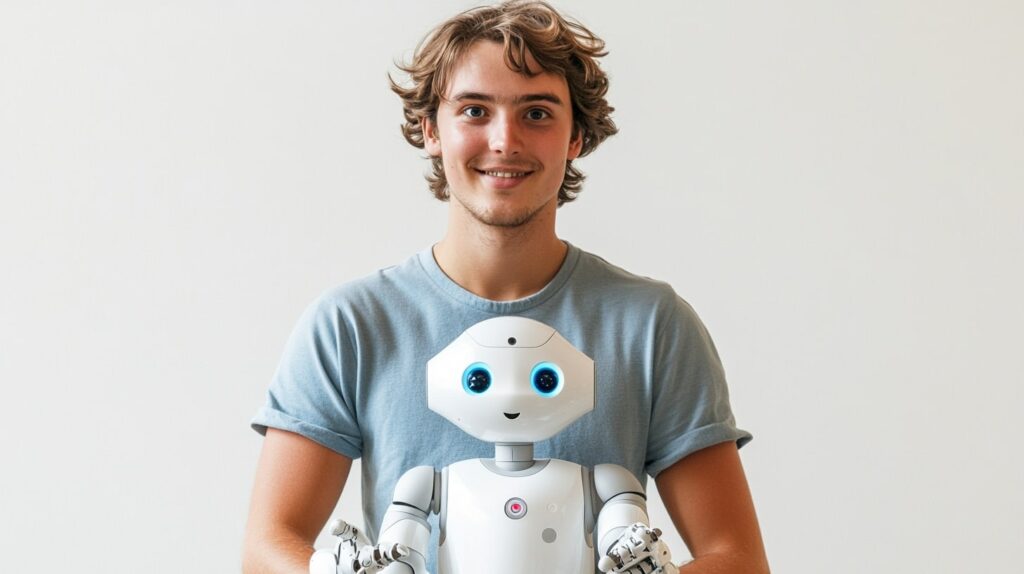AI Trainer: Shaping the Intelligence of Tomorrow

Artificial intelligence is no longer a futuristic concept. It’s part of our daily lives, from virtual assistants to recommendation algorithms. At the heart of this transformation is the AI trainer, a professional who teaches AI systems to think, respond, and act more intelligently.
As AI continues to evolve, the demand for skilled AI trainers is high. These experts ensure AI systems understand human needs, process data accurately, and perform reliably.
By refining AI behavior, trainers are shaping the tech landscape. They make systems smarter and more accessible. Their work drives innovation across industries, from healthcare to entertainment. And they set the foundation for a future where AI seamlessly integrates into our world.
Ready to Dive in?
The world of AI training is exciting, dynamic, and full of opportunities. Whether you're a tech enthusiast or someone curious about a new career path, now is the perfect time to explore this field.
With us, you can discover how you can help train the next generation of AI systems. By doing so, you'll contribute to a smarter, more connected future. Start by learning the basics, connecting with professionals, or even applying for AI training jobs. Your journey to becoming an AI trainer begins with a single step - take it today!
Download our free AI Trainer guide
Want to kickstart your AI training career? Our free AI Trainer guide is packed with:
- Practical advice
- Tools
- Step-by-step tips
Our main focus is to help you succeed. Learn how to break into the industry. Master essential skills and stay ahead in this fast-growing field. This guide is valuable whether you're a beginner or looking to level up your skills.
Our guide is your go-to resource for becoming an AI data trainer. Download it now and start shaping the future of AI!
What is an AI Trainer?
What is an AI trainer? An AI trainer is a professional who helps AI systems learn and improve. Their core responsibility is to guide AI models. These include systems like chatbots, recommendation engines, or image recognition tools. Trainers guide these systems toward better performance. This involves working with vast amounts of data, refining language models, and teaching AI to respond in ways that feel natural and accurate.
AI trainers perform tasks like:
- Labeling data to help AI recognize patterns and categorize accurately.
- Categorizing datasets to improve AI's understanding of complex relationships.
- Writing prompts to guide language models in generating coherent responses.
- Crafting scripts for training AI in specific conversational scenarios.
- Reviewing AI outputs to find and correct errors promptly.
- Evaluating responses to detect and mitigate biases effectively.
- Testing models rigorously to ensure consistent performance across tasks.
- Validating AI behavior aligns with intended goals and standards.
- Providing feedback to refine algorithms and enhance accuracy.
- Collaborating with developers to optimize training processes.
By combining tech know-how with creativity, AI trainers ensure AI systems are not only functional. They ensure AI is also user-friendly and trustworthy. Their work is critical to making virtual helpers or autonomous vehicles reliable and effective.
Key Roles in the AI Training Process

The development of artificial intelligence systems is a complex and collaborative endeavor. It relies on a diverse set of roles, each contributing unique expertise to the training process. From conceptualizing the system’s purpose to refining its performance, the journey of creating AI involves a blend of:
- Technical
- Analytical
- Creative skills
Professionals in these roles work together. Trainers ensure AI models are effective, ethical, and aligned with their intended goals. Their collective efforts shape the data, algorithms, and frameworks. These enable AI to learn, adapt, and deliver meaningful outcomes.
AI trainers must understand the interplay of these roles. It provides insight into the intricate process of building systems that are changing industries and societies. The next blocks will introduce the significance of these contributions. They will highlight the collaborative nature of AI development and the importance of each role in crafting tech that is both innovative and responsible. Here’s a look at the main specializations within the field.
Conversation Designers
Conversation designers are often called AI chatbot trainers. They are the architects of human-like interactions. They craft scripts, dialogues, and responses. These make chatbots and virtual assistants sound natural.
The goal of AI trainers is to ensure AI can understand user queries. This helps AI reply in a conversational and helpful manner. For example, they might design a chatbot’s response to “What’s the weather like?”. They can include not just data but also a friendly tone. These trainers use linguistics, psychology, and creativity. Through these methods, they make AI interactions engaging and intuitive.
Model Improvers
Model improvers, or AI model trainers, focus on the insides of AI performance. They label data, provide feedback, and fine-tune models through iterative training. For instance, they might review a language model’s output and flag inaccuracies. This helps AI systems learn from their mistakes. Their work ensures models become more accurate over time, whether they're recognizing images or generating text. This role requires patience and an attention to detail to spot subtle errors that could impact performance.
Technical Integrators
Technical integrators bridge the gap between AI training and real-world applications. They ensure trained models are seamlessly embedded into products, including apps, websites, or devices.
It involves working with developers to troubleshoot issues and optimize performance. For example, an integrator might help deploy a chatbot on a company’s website. This ensures the chatbot runs smoothly under heavy user traffic. This role blends tech expertise with problem-solving to bring AI to life in practical settings.
Analytics Experts
Analytics experts dive into the data behind AI trainer performance. They:
- Analyze model outputs
- Track metrics like accuracy or response time
- Use insights to guide improvements.
For example, a chatbot struggles with certain questions. An analytics expert can identify the issue and suggest retraining. Their work ensures AI systems are not just functional but continuously improving. This role requires strong data analysis skills and the ability to translate numbers into actionable steps.
Why AI Trainers Matter in 2025 and Beyond

As AI becomes more advanced, the role of AI trainers remains critical. By 2025, AI is expected to power everything from self-driving cars to healthcare diagnostics. AI trainers ensure these systems are safe, ethical, and effective. With the rise of generative and autonomous AI, trainers are adapting to new challenges. They must ensure AI remains aligned with human values and needs. Their work shapes how AI interacts with the world, making it a cornerstone of technological progress.
The Impact of Generative AI on AI Training
In AI training jobs, Generative AI, like ChatGPT and image generators, has transformed the trainer’s role. These systems create text, images, or music. And they require trainers to focus on quality, creativity, and ethics. AI trainers now refine outputs to reduce biases, ensure factual accuracy, and enhance user experience (UX).
For example, they might adjust a language model to avoid generating misleading information. This shift has made training more complex. This complexity stems from trainers needing to balance innovation with responsibility. This approach ensures generative AI is both powerful and trustworthy.
Agentic AI: Opportunities and Challenges
Agentic AI refers to systems that act independently. They make decisions and perform tasks without constant human input. Examples include AI assistants that schedule meetings or robots that navigate environments. Training agentic AI presents unique challenges, as AI trainers must teach systems to prioritize safety, ethics, and efficiency. They design scenarios to test decision-making and ensure AI aligns with user goals. As agentic AI grows, AI trainers will play a key role in shaping systems that are autonomous yet accountable.
Core Skills Every AI Trainer Needs
Artificial intelligence is transforming industries. And AI trainers play a pivotal role in shaping its future. Crafting intelligent systems requires a unique blend of:
- Technical expertise
- Critical thinking
- Adaptability
This block explores the essential skills every AI trainer must master to excel in this dynamic field. From understanding complex algorithms to managing vast datasets, the journey demands precision and creativity. For an AI trainer, effective communication and collaboration are equally vital. This is particularly important since AI trainers often work with diverse teams to refine models.
Staying ahead in this rapidly evolving landscape means embracing continuous learning and problem-solving. This field welcomes both beginners and seasoned professionals alike. Honing these core competencies will empower you to build smarter, more ethical AI solutions.
Let’s dive into the key attributes that define success in AI training and discover how to thrive in this exciting, high-impact domain.
Essential Soft Skills
Essential soft skills for AI trainers include:
- Communication. AI trainers must explain complex ideas clearly to teams and stakeholders.
- Critical Thinking. Analyzing AI outputs and solving problems creatively is crucial.
- Empathy. Understanding user needs helps AI trainers design human-centric AI.
- Attention to Detail. Spotting subtle errors ensures high-quality AI performance.
Technical Competencies
Key technical competencies for AI model trainers include:
- Data Labeling. Organizing and annotating data to train models effectively.
- Prompt Engineering. Crafting inputs to guide AI toward desired outputs.
- Basic Coding. Familiarity with Python or SQL helps in automating tasks.
- Model Behavior Analysis. Understanding how AI processes data to optimize performance.
Career Paths and Opportunities for AI Trainers

Becoming an AI trainer is accessible to those with diverse backgrounds. A degree in computer science or data science helps. However, many AI trainers start with online courses or bootcamps. Key steps include:
- Learn the Basics. Study AI concepts, data annotation, and prompt engineering. It can be done through platforms like Coursera or Udemy.
- Gain Experience. Start with freelance projects or internships to build a portfolio.
- Network. Join AI communities to connect with professionals and learn about opportunities.
- Stay Updated. Follow AI trends to remain competitive in this fast-moving field.
Industries hiring AI trainers include tech, healthcare, finance, and retail. Roles range from entry-level data annotators to senior model optimizers. Salaries vary. There are entry-level AI trainer positions starting around $50,000-$70,000 annually in the U.S.
Meanwhile, experienced AI trainers can earn $100,000 or more. The field is projected to grow rapidly, with demand for workers increasing as AI adoption expands globally.
Your Role in Shaping the Future of AI
As an AI data trainer, you’re not just building technology. You’re shaping its impact on society. Trainers influence AI’s ethics, safety, and usefulness. They ensure it serves humanity responsibly.
For example, by reducing biases in AI outputs, AI trainers promote fairness in applications like hiring or lending. By testing safety protocols, they prevent errors in critical systems like medical diagnostics. Your work makes AI a force for good, enhancing lives and solving global challenges.
Consider the ripple effect. A well-trained chatbot can improve customer service. Meanwhile, a refined AI model can accelerate scientific research. AI trainers bridge the gap between raw technology and real-world impact. They make AI accessible and trustworthy. By embracing this role, you become a steward of AI’s potential. You will guide it toward a future that’s innovative, inclusive, and safe.
Join the Global AI Trainer Community
The AI trainer community is vibrant and welcoming, offering countless ways to connect and grow. Engage with others through:
- Online Forums. Platforms like Reddit’s r/MachineLearning or AI-focused Discord servers.
- Courses and Certifications. Enroll in programs from Google, IBM, or DeepLearning.AI.
- Events and Conferences. Attend AI summits like NeurIPS or local meetups to network.
- Professional Groups. Join organizations like the AI Guild for resources and mentorship.
These spaces provide support, knowledge, and opportunities to advance your career. Whether you’re sharing tips, collaborating on projects, or learning from experts, the community empowers you to thrive as an AI trainer.By joining this global network, you’ll stay inspired, informed, and connected to a field that’s shaping the future. Start today - download our free guide, explore AI trainer jobs, and take your place in the world of AI training. The intelligence of tomorrow starts with you.


